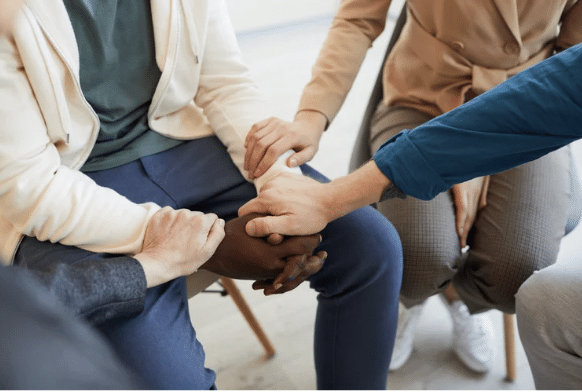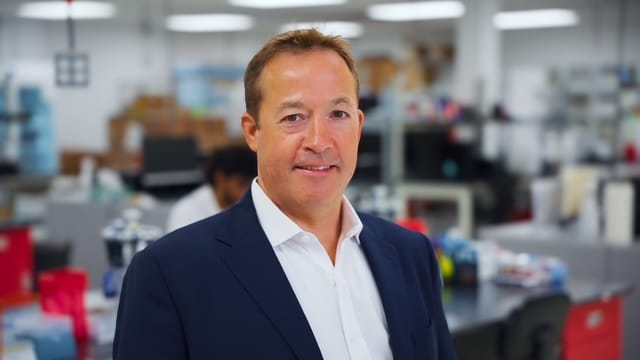Health coaching doesn’t just transform individual lives. It helps build stronger, healthier communities. More than guiding people through lifestyle change, health coaches create the conditions for connection, trust, and empowerment. They help individuals feel seen, supported, and capable of achieving their wellness goals. That ripple effect spreads far beyond the coaching relationship.
By working in schools, clinics, organizations, and neighborhoods, health coaches become powerful catalysts for collective change. They foster meaningful collaboration, address systemic barriers, and cultivate networks that support health and well-being at every level.

How Health Coaches Build Community
Health coaches play a vital role in shaping healthier communities by fostering connection, communication, and collaboration. Here’s how they do it:
Creating Supportive Networks
Health coaches bring people together around shared goals. Through group programs, support circles, and community events, they offer spaces where individuals can connect, exchange ideas, and support one another.

Promoting Collaboration
From hospitals and nonprofits to schools and workplaces, coaches serve as bridges across sectors. Their ability to collaborate helps maximize available resources and align efforts to meet the real needs of the community.
Empowering Individuals as Advocates
Coaches do more than share information. They activate change. Through workshops and outreach initiatives, health coaches equip people with practical tools and evidence-based knowledge that encourages personal responsibility and inspires community advocacy.
Facilitating Peer Support
Health coaches guide the development of peer networks that provide both emotional encouragement and actionable strategies. These networks increase motivation, build accountability, and create a sense of shared purpose.

Offering Culturally Relevant Programming
Coaches meet communities where they are. By designing health education and coaching programs that reflect the values, language, and lived experiences of their audiences, they build trust and foster lasting impact.
Addressing Social Determinants of Health
Health coaches are also advocates for equity. They promote policies and programs that improve food access, housing stability, financial wellness, and environmental safety—factors that deeply influence overall health.
How You Can Build a Healthier Community
Building a thriving community as a health coach takes passion, intention, and action. Whether you are just starting out or looking to expand your impact, here are some ways to bring your community together around health and wellness:
Lead by Example: Be open about your own health journey. Authenticity builds trust and shows that transformation is possible.
Cultivate Connection: Create a welcoming environment where people feel safe to share, connect, and grow. Group sessions, online forums, and community meetups can all foster a sense of belonging.
Facilitate Collaboration: Partner with other professionals and organizations to amplify your impact. Co-host events like wellness fairs, cooking demos, or fitness classes that invite people to engage and learn together.
Champion Diversity and Inclusion: Embrace the differences that make your community unique. Create inclusive spaces that honor all cultures, identities, and experiences.
Stay Informed: Keep learning about health inequities and the unique challenges your community may face. Staying updated helps you better support your clients and advocate for needed resources.
Make Coaching Accessible: Offer flexible scheduling, virtual options, and materials in multiple languages when possible. Consider pricing models or partnerships that make your services available to more people.

Why Community Matters
Community is a powerful driver of health. People are more likely to stay committed to their goals when they feel supported, connected, and understood. Research shows that community-based coaching improves client knowledge, confidence, and long-term success.
Celebrating cultural identity, creating inclusive spaces, and advocating for local change all contribute to a stronger, more resilient society. When communities come together, they can push for policies and initiatives that support equity, wellness, and social justice for everyone.

Reaching Underserved Communities
The impact of health coaching is especially significant in underserved communities. People in low-income, rural, and BIPOC communities often face greater barriers to health due to economic disparities, limited healthcare access, and systemic inequities.
Health coaches can be part of the solution. By working at the grassroots level, advocating for better policies, and empowering individuals with tools for change, they help break cycles of poor health and promote lasting transformation.
This work is not just about health. It is about justice, dignity, and giving every person the opportunity to thrive.
Expanding Access to Health Coaching
FMCA and The Institute for Functional Medicine are committed to expanding access to functional medicine and health coaching across the globe. Together, they are working to lower barriers to entry and bring a root-cause, lifestyle-focused approach to the people who need it most.
Thanks to a generous grant from the VoLo Foundation, FMCA and IFM are investing in scholarships and educational opportunities for aspiring coaches and practitioners. This initiative aims to advance health equity and make a lasting difference in communities that have been historically underserved.
Learn more about the scholarship opportunities with FMCA through the VoLo Foundation here.

Interested in Scholarship Opportunities?
Subscribe to be the first to know of any scholarship opportunities PLUS you’ll receive invitations to special events along with the latest news from FMCA.
Our Latest Blogs
-

Food Sensitivity Testing 101: Supporting Clients with Inflammation and Gut Issues
Read Full Article: Food Sensitivity Testing 101: Supporting Clients with Inflammation and Gut Issues -

Protein 101: The Health Coach’s Guide
Read Full Article: Protein 101: The Health Coach’s Guide -

Women’s Health and the Vaginal Microbiome: A Probiotic Breakthrough
Read Full Article: Women’s Health and the Vaginal Microbiome: A Probiotic Breakthrough

